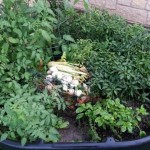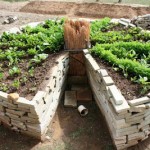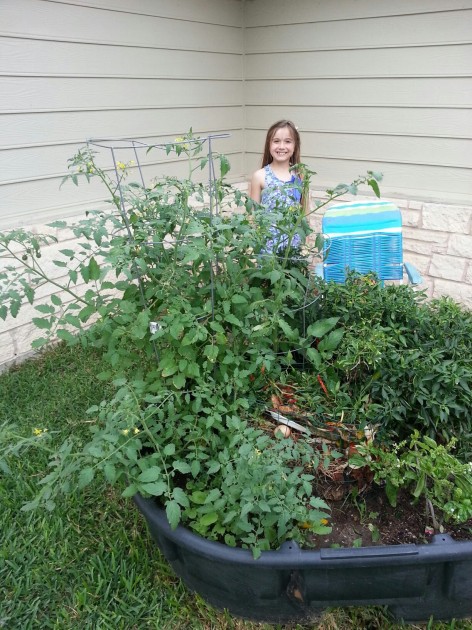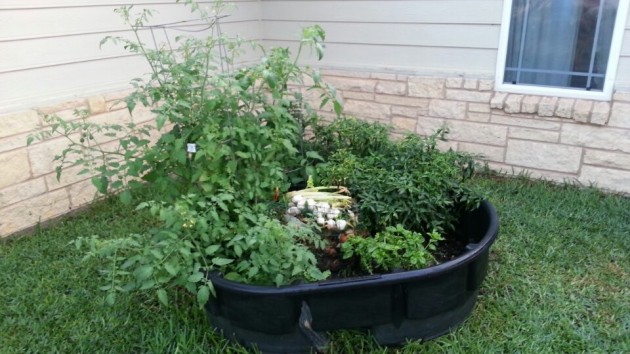What an exciting day at the office! One of the first patients of the day shared that he had begun the NRG Diet several weeks ago and already lost eleven pounds! Previously, he had been working excessive hours, eating on the road, and his body suffered the consequences.
The Epiphany?
“The food I was eating caused me to become overweight.”
Since the change, now he has experienced:
- Weight loss
- Loss of several inches body fat in mid-section
- Improved eNeRGy
- Improved sleep
- Better mental focus
Check out the 4 Key Changes Leading to his Weight Loss Success:
1. Quit Sodas:
This is a huge step, one I’ve mentioned numerous times in other blogs
2. Decreased Processed sugar:
Eating sugar= High Insulin = Weight Gain = Diabetes. ENOUGH Said.
(Eating Sugar Causes Diabetes)
3. Decreased Alcohol Consumption:
Same reason as #2 except also triggers a hormone stress response and disrupts hormone balance.
(Alcohol Risks/Benefits, More on Alcohol)
4. Planted a Garden/Began Eating more “Home Grown” food
Because of the last point, the talk quickly moved on to whole-food procurement and production. We discussed organic gardening techniques (Which they he had already started). The talk shifted to the relative ease and benefits of having one’s own garden, greenhouse, or plot to produce food from home.
Additional Benefits of a Home Garden
Our ensuing discussion raised great points that I want to share with you about home gardens, home food procurement and the obvious health benefits.
First off, producing your own food doesn’t necessarily require huge time investments.
An example of the minimalist approach to gardening includes my key-hole garden setup shown above. Made from an old cattle trough, this garden has a built in compost in the center, providing a way to compost in the same space as the garden.
The garden requires 40% less water than a traditional garden and the close proximity of the compost process acts like a fertilizing supercharger.
A simple process, I place plant cuttings, grass clippings, egg shells, spoiled veggies and fruits from fridge in the center bin. I water in the center and allow the compost to “fuel” the rest of the beds.
The garden took a few hours to prepare and has produced fresh herbs and vegetables consistently for months. Notice the incredible tomato explosion on the left..that plant is only a few weeks old!
Cost Savings
Skyrocketing grocery prices make me glad I chose to plant a small keyhole garden.
Many families routinely spend $200-300 dollars each visit to the local grocery store. Our home cost analysis revealed fresh produce led the expense column. And as we’ve discussed numerous times on this blog, knowing where your food comes from is a big deal. Many people are finding out that this may be “THE BIG DEAL” contributing to so many health ailments Americans suffer.
What do you not see below the soil?
1. Healthy microbial balance:
Completely organically grown veggies, grown without pesticides, herbicides, and fueled with a compost bin at the center, provides an ecologically balanced environment that naturally protects plants against ailments like fungus, bacteria, and viruses.
Just like people who take too many antibiotics and become weak and susceptible to every ailment that comes along–plants are the same way. A strong, well-fed plant, produces food that provides the same for us.
2. Greater Nutritional value:
Home grown plants are generally healthier because organically fertilized soils are dense in vital nutrients. Unlike store bought veggies grown on farms with soil stripped of minerals and nutrients (due to over-farming, chemical fertilizers, and herbicides), these veggies are chocked full of key elements we are supposed to get from vegetable matter.
Sadly, it is now possible with modern agricultural techniques to eat “Healthy” foods (Like fruits / vegetables) but because of the nutrient deficient soil, we can still develop vitamin and mineral deficiencies. Organic gardening, and this key-hole example reverse that trend.
Plus everyone knows tomatoes grown at home taste better!!!
3. Less Waste:

Compost bins are awesome for recycling paper, vegetable, and plant matter. I even use the bin to dispose of egg shells. This reduces our trash “footprint” and leads to less stinky garbage cans!
4. Flavor/Self-Sufficiency:
Want to spend less gas going to the store and enjoy fresher foods? Many vegetables are now sold in locations far remote from their origin. The veggies are picked before they are fully ripe, before they’ve absorbed flavor, as well as aforementioned soil elements that improve quality of taste and nutritional value. Worse yet, they are often frozen, packed in plastic, and sprayed with insecticides, and chemicals to accelerate ripening during shipping….no wonder so many kids don’t want to eat their vegetables!
All that said, I find it satisfying and reassuring to pluck food out of my own backyard.
Conclusion:
I think my patients, readers, and Joe Public have begun to understand the vital relationship between the food we eat and health. I see a rise in farmer’s markets, local farming, and general organic technique awareness. Perhaps tighter economic times have encouraged us all to look for ways to save a dime and in turn save ourselves?
In the case of a small, highly productive, key-hole garden, the savings can extend from the grocery store to the doctors office. I’m very proud of the accomplishments of my readers and patients who have chosen to focus more on small nutritional and lifestyle choices that pay the largest benefits. As a physician and healer I’m especially excited for those who take a few extra steps to produce their own delicious, nutritious food. These individuals have taken the greatest step towards greater health, vitality, and longevity.
Maybe more doctors should prescribe gardens instead of drugs?
Want more ideas for you own key-hole garden? Check out the following link….



Excellent article. There were two especially awesome lines that I pulled from the conclusion:
“Perhaps tighter economic times have encouraged us all to look for ways to save a dime and in turn save ourselves?”
“Maybe more doctors should prescribe gardens instead of drugs?”
Both are very thought provoking and insightful. Brilliant post!
Hear, hear!! Amen!! Great article! How exciting for you client today to come to some of these realizations. 🙂 I pulled 3 zucchini, 1 cucumber, a handful of green beans from my garden this evening. I had two yellow squash yesterday and several small beets (we planted them too late for a decent size.) My tomatoes are still green, but they are getting close. I enjoy this time of year so much when I can eat my OWN fresh stuff and not have to pay and arm and a leg for it!!
Thanks Pam, you’ve brightened my day!
Keep up the great work.
услуги по продаже аккаунтов купить аккаунт
продажа аккаунтов маркетплейс аккаунтов
заработок на аккаунтах заработок на аккаунтах
площадка для продажи аккаунтов покупка аккаунтов
покупка аккаунтов https://prodat-akkaunt-online.ru/
маркетплейс аккаунтов соцсетей магазин аккаунтов
покупка аккаунтов https://pokupka-akkauntov-online.ru/
Website for Buying Accounts Account exchange
Account Buying Platform Account Sale
Account Trading Service Marketplace for Ready-Made Accounts
Account Buying Service Online Account Store
Find Accounts for Sale Secure Account Sales
Account Selling Platform Account Buying Platform
Ready-Made Accounts for Sale Database of Accounts for Sale
Account Trading Accounts for Sale
Account Catalog Account Buying Service
Website for Buying Accounts Sell Account
Account Trading Service socialmediaaccountsale.com
account catalog account acquisition
social media account marketplace https://cheapaccountsmarket.com
secure account purchasing platform account buying platform
guaranteed accounts sell account
find accounts for sale https://accountsmarketbest.com/
accounts for sale account trading
ready-made accounts for sale account marketplace
accounts marketplace account trading platform
purchase ready-made accounts find accounts for sale
account market gaming account marketplace
guaranteed accounts buy pre-made account
account exchange accounts for sale
marketplace for ready-made accounts sell pre-made account
website for buying accounts https://social-accounts.org
account catalog account buying service
account sale accounts market
account exchange buy pre-made account
sell account find accounts for sale
account buying service profitable account sales
buy accounts ready-made accounts for sale
account buying service account exchange
sell pre-made account account market
account selling platform account selling service
account catalog guaranteed accounts
marketplace for ready-made accounts https://accounts-store.org/
ready-made accounts for sale accounts marketplace
account trading platform account buying service
buy and sell accounts guaranteed accounts
account catalog https://accounts-offer.org
account market https://accounts-marketplace.xyz
buy accounts https://buy-best-accounts.org
account selling platform https://social-accounts-marketplaces.live
secure account purchasing platform https://accounts-marketplace.live
website for selling accounts https://social-accounts-marketplace.xyz/
find accounts for sale buy accounts
account catalog https://buy-accounts-shop.pro
account selling service https://social-accounts-marketplace.live
website for buying accounts buy-accounts.live
account selling service https://accounts-marketplace.online
accounts marketplace https://accounts-marketplace-best.pro
продать аккаунт https://akkaunty-na-prodazhu.pro/
маркетплейс аккаунтов https://rynok-akkauntov.top/
магазин аккаунтов https://kupit-akkaunt.xyz/
маркетплейс аккаунтов https://akkaunt-magazin.online
площадка для продажи аккаунтов akkaunty-market.live
площадка для продажи аккаунтов маркетплейсов аккаунтов
биржа аккаунтов akkaunty-optom.live
покупка аккаунтов https://online-akkaunty-magazin.xyz/
продать аккаунт akkaunty-dlya-prodazhi.pro
маркетплейс аккаунтов соцсетей https://kupit-akkaunt.online/
buying facebook account facebook account sale
facebook ad accounts for sale facebook ads account buy
buying fb accounts https://buy-ad-account.top
facebook ad account buy https://buy-ads-account.click
buy account facebook ads https://ad-account-buy.top
cheap facebook account facebook account buy
buying facebook accounts https://ad-account-for-sale.top
buying fb accounts buying facebook account
buy facebook account https://ad-accounts-for-sale.work
google ads reseller google ads reseller
sell google ads account buy old google ads account
facebook ad account for sale https://buy-accounts.click
google ads accounts https://ads-account-for-sale.top
google ads reseller https://ads-account-buy.work
google ads account seller buy-ads-invoice-account.top
adwords account for sale https://buy-account-ads.work/
buy verified google ads account https://buy-ads-agency-account.top
buy google ads threshold account https://sell-ads-account.click
buy verified google ads account https://ads-agency-account-buy.click
facebook bm buy buy-business-manager.org
buy google ads account https://buy-verified-ads-account.work
buy fb bm https://buy-bm-account.org/
facebook bm account buy https://buy-business-manager-acc.org
buy verified business manager https://buy-verified-business-manager-account.org/
facebook bm for sale buy verified facebook
buy facebook business account https://business-manager-for-sale.org
buy facebook bm https://buy-business-manager-verified.org/
buy business manager account buy-bm.org
verified business manager for sale buy verified bm facebook
buy facebook bm account buy-business-manager-accounts.org
tiktok ads account buy https://buy-tiktok-ads-account.org
tiktok agency account for sale https://tiktok-ads-account-buy.org
buy tiktok ads account tiktok ads account for sale
tiktok ads account for sale https://tiktok-agency-account-for-sale.org
buy tiktok ads account https://buy-tiktok-ad-account.org
buy tiktok ad account https://buy-tiktok-ads-accounts.org
buy tiktok ads https://buy-tiktok-business-account.org
tiktok ads account buy https://buy-tiktok-ads.org
buy tiktok business account https://tiktok-ads-agency-account.org